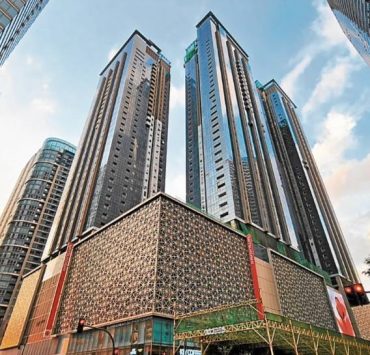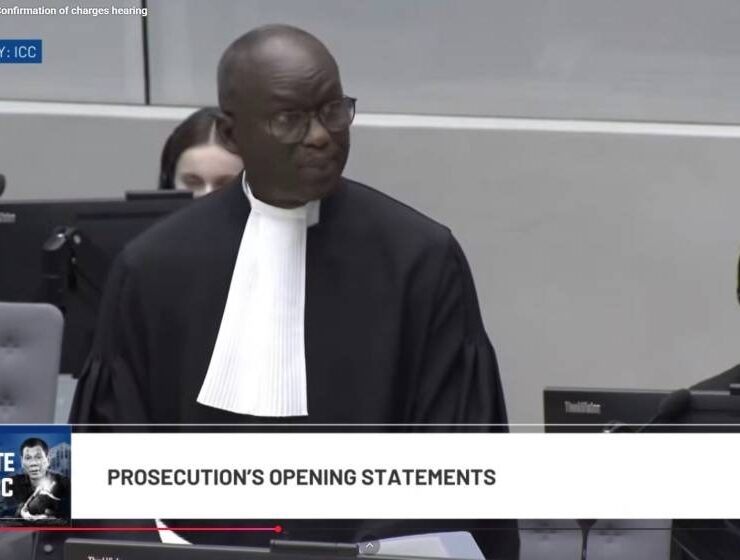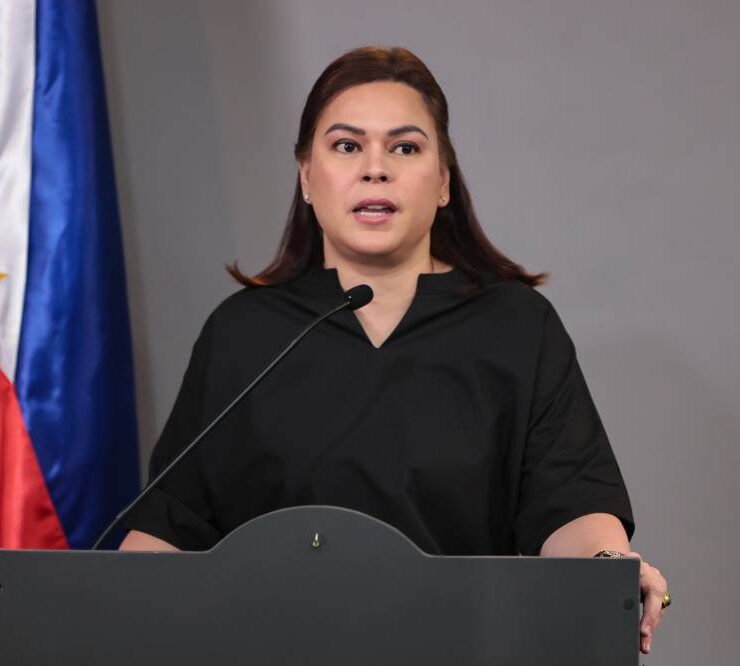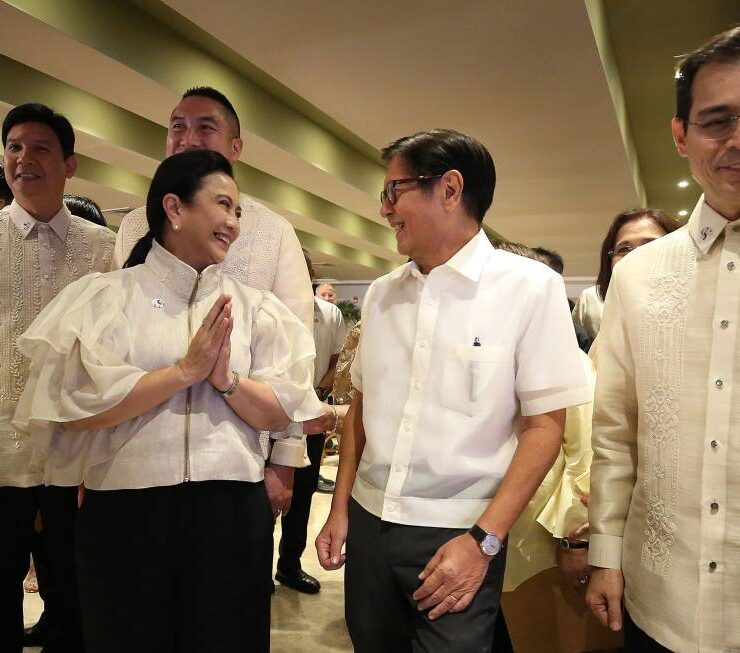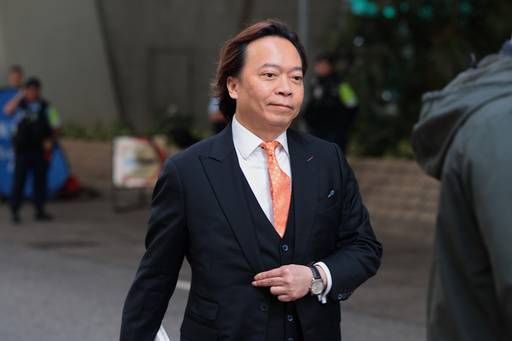Marcos bans Pogo, cites ‘disorder’ it caused PH
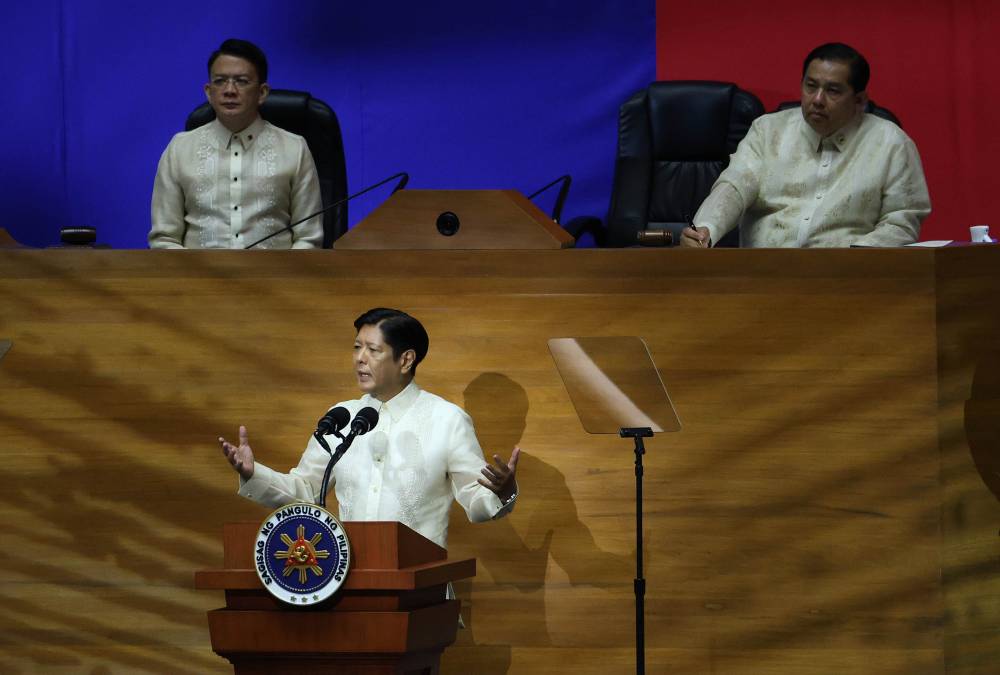
Heeding the clamor of lawmakers, business groups, civil society and even his economic managers, President Marcos on Monday banned all Philippine offshore gaming operators (Pogos) effective immediately.
“Disguising as legitimate entities, their operations have ventured into illicit areas furthest from gaming, such as financial scamming, money laundering, prostitution, human trafficking, kidnapping, brutal torture, even murder. The grave abuse and disrespect to our system of laws must stop,” the President said during his third State of the Nation Address (Sona), eliciting a standing ovation and chanting of his initials “BBM” among lawmakers, government officials and other guests at the Batasang Pambansa’s session hall.
“The disorder that it caused our society as well as the desecration of our country must stop. Effectively today, all Pogos are banned,” Mr. Marcos firmly declared toward the end of his speech that lasted an hour and 22 minutes.
The President instructed the state regulator Philippine Amusement and Gaming Corp. (Pagcor) to “wind down and cease the operations of Pogos by the end of the year.”
He then directed the Department of Labor and Employment (Dole), in coordination with his economic managers, to “use the time between now and then to find new jobs for our countrymen who will be displaced.”

The Dole earlier said that some 25,000 workers could find themselves jobless should Congress enact a legislation banning Pogos.
The Chief Executive stressed that the ban on Pogos “will solve many of the problems that we are encountering, but it will not solve all of them.”
He urged all government officials and employees, law enforcers and the Filipino people to “always be vigilant, principled and think of the nation” in order to “solve all the problems that we have been suffering under.”
Mr. Marcos’ pronouncement ended speculation over his stance on Pogos, amid the involvement of illegal offshore gaming hubs in crimes ranging from financial crimes to kidnapping, human trafficking and murder.
Pagcor Chair Alejandro Tengco vowed to comply with the President’s order on Pogos in the remaining six months of 2024.
“We have to start the process. We cannot just do it by the end of the year, there will be a process first. Many of those to be affected are legally working. We have to explain it to them,” Tengco told reporters after Mr. Marcos’ speech.
Tengco said he was not surprised by the President’s pronouncement, adding that he had no qualms about implementing it, even if he was in favor of stronger regulation rather than an outright ban.
He warned that there might be an increase in the number of illegal gaming hubs in the country with the ban in place.
“There should be coordination with law enforcement agencies to counter this,” Tengco added.
Last week, business groups pushed to ban Pogos, a move that snowballed following the congressional probe on the social ills and other crimes that attended their operations.
On separate occasions, Finance Secretary Ralph Recto, Socioeconomic Planning Secretary Arsenio Balisacan and Budget Secretary Amenah Pangandaman agreed that Pogos should be banned.
China, which prohibits all forms of gambling, had long urged the Philippines to ban Pogos, which catered mainly to Chinese nationals.
Cost outweighs benefits
Pogos first emerged in the country in 2016, the first year of President Rodrigo Duterte’s presidency, as he pursued closer trade and investment ties with China.
But along with the rise of Pogos came reports of serious crimes—killings, kidnappings, blackmail, prostitution, illegal detention and other infractions that abused the laws of the country and victimized workers of Pogos.
In justifying continued Pogo operations in September 2019, Duterte said shutting them down would cause job and revenue losses.
According to data presented by the Department of Finance during a Senate hearing last July 16, the estimated total economic benefits from Pogos amounted to P166.49 billion annually, while the estimated total economic cost was P265.74 billion.
Economic losses included both direct and indirect costs of allowing Pogo operations, which include “effects of reputational risks which have an impact on foreign direct investments” and the “negative impact of criminal incidents” to the country’s attractiveness as a tourist destination.
Since last year, several illegal Pogo operations have been raided for being linked to criminal activities, including espionage.
One of these was the police raid of an illegal Pogo hub in Bamban, Tarlac, following human trafficking and serious illegal detention complaints that were later linked to suspended Bamban Mayor Alice Guo.
‘Bloodless’ drug war
Earlier in his speech, the President reassured the people that the government’s antinarcotics campaign would remain “bloodless” under his watch and that “extermination” of illegal drugs suspects would never be a strategy, drawing the first standing ovation in the course of his Sona.
The previous administration’s bloody campaign on illegal drugs attracted international attention from human rights groups following the mounting death toll it had caused.
Drug suspects killed was officially placed at 6,235 as of Feb. 28, 2022, according to the Philippine Drug Enforcement Agency, adding that 331,694 suspects were arrested in the 229,868 drug war operations that started on the day Duterte took office in 2016. —WITH A REPORT FROM INQUIRER RESEARCH
OTHER SONA HIGHLIGHTS
• Legislative wish for the proposed national budget to be approved in a timely manner and adhered to as closely as possible following increased budget especially in health and education
• Implement pre-border technical verification and cross-border electronic invoice of import commodities
• Kadiwa centers will continue operations and more will be added across the nation
• Irrigation dams will supplement all bulk water projects to ensure water security
• Phases 2 and 3 of the National Fiber Backbone project will commence this year and be completed by 2026
• Unified Philippine Grid connecting the power grids of all three major island groups
• Congress asked to check if Epira (Electric Power Industry Reform Act) needs revision to fit the country’s current power industry situation
• Build more specialty hospitals and “Super Health Centers” in local government units
• Each province will be provided with a mobile clinic in the future to provide people with easier access to laboratory exams and other medical services
• Walang Gutom Program 2027 will be rolled out to over 300,000 food-poor households by the end of this year
• Launching of DOH’s comprehensive mental health plan
• Production of textbooks will be cut short from three years to one year to ensure that instructional materials are error-free and up-to-date
•DepEd, CHEd, Dole and Tesda join forces to incorporate Technical-Vocational Education and Training in school curriculums to boost student employability
• Implementation of PH eVisa will be next in the digital transformation agenda
• “Kabalikat sa Pagtuturo” Act signed into law, to provide public school teachers with annual teaching allowance starting from 2025• Upskilling teachers at the forefront of national learning recovery, including an expanded system for teacher development
• Special Hardship Allowance and Personal Accident Insurance from the Government Service Insurance System for public school teachers• Scholarships and research and development grants will continue to be made available to support start-ups
• 350 air and seaport development projects set to be completed by 2028
• Technical and professional-level training courses in cybersecurity and creative industries will be launched
• Promote experiential tourism to boost the country’s tourism industry —COMPILED BY INQUIRER RESEARCH















